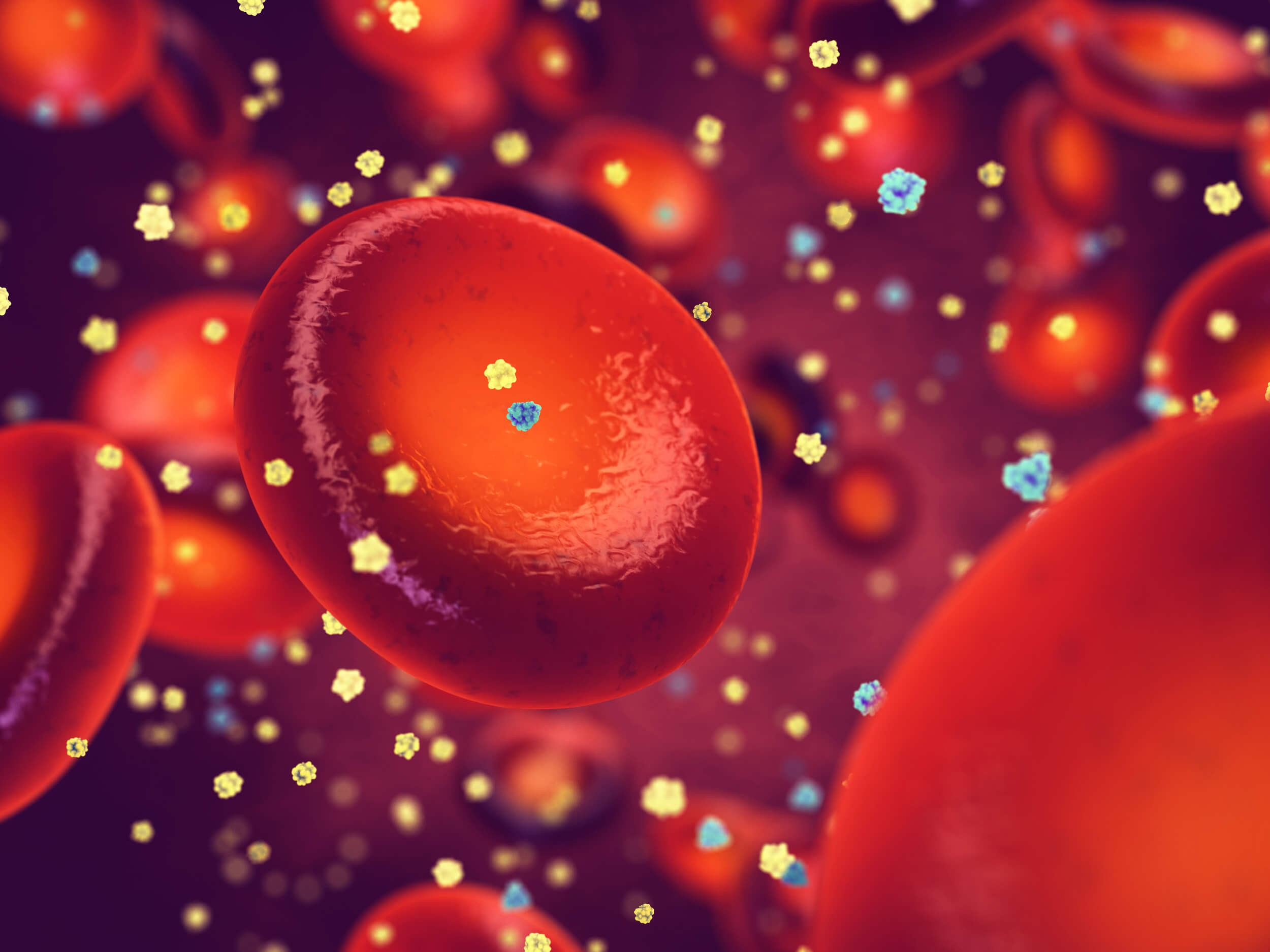What if your stomach suddenly turned against you, causing pain, exhaustion, and endless trips to the bathroom? That’s the reality for people with Crohn’s disease, a condition that creates long-term inflammation in the digestive tract. It can strike at any time, bringing stomach cramps, diarrhea, and extreme fatigue. Some days feel normal, while others are filled with discomfort and frustration.
Symptoms don’t stop at digestion—Crohn’s disease can lead to joint pain, skin problems, and even malnutrition. Severe cases may cause complications that require surgery. There’s no cure, but treatments can make a huge difference. Medications, diet changes, and lifestyle adjustments help many people regain control and prevent flare-ups.
Doctors aren’t completely sure why it happens, but genetics, immune system reactions, and environmental triggers all play a role. This article breaks down the causes, symptoms, and best treatment options to help those dealing with Crohn’s disease take charge of their health.
What Causes Crohn’s Disease?
Why do some people develop Crohn’s disease while others don’t? Doctors don’t have one clear answer, but research points to a mix of genetics, immune system problems, and environmental factors. These triggers can work together, making some people more likely to get the disease.
Genetic Factors
Family history plays a big role in Crohn’s disease. If a parent, sibling, or close relative has it, the chances of developing it are higher. Scientists have found over 200 genes linked to Crohn’s, but they still don’t know exactly how these genes cause the disease.
Some people inherit these genes but never develop symptoms, while others experience severe flare-ups. While genes may set the stage, they aren’t the only reason someone gets Crohn’s disease. Other factors can turn those risks into reality.
Immune System Response
The body’s defense system can sometimes work against itself. Instead of attacking harmful bacteria, the immune system may mistakenly target the digestive tract, causing ongoing inflammation. This leads to the painful symptoms of Crohn’s disease, like cramping and diarrhea.
Some researchers believe certain gut bacteria trigger this abnormal response, making symptoms worse. Since the immune system is involved, Crohn’s is often treated with medications that calm inflammation and stop the body from attacking healthy tissue.
Environmental Triggers
Lifestyle and surroundings can also increase the risk of Crohn’s disease. Smoking is one of the biggest triggers—it not only raises the chances of getting Crohn’s but also makes symptoms worse. Diet can play a role, too.
High-fat, processed foods may increase inflammation in some people. Stress doesn’t cause Crohn’s, but it can trigger flare-ups. Infections from certain bacteria or viruses are also suspected triggers, though more research is needed. While these factors don’t directly cause the disease, they can make symptoms harder to control.
How to Spot Crohn’s Disease: Symptoms and Warning Signs
What if your stomach pain wasn’t just from something you ate? Many people with Crohn’s disease deal with digestive issues that don’t go away. The symptoms can come and go, but when they flare up, they can take over daily life. Knowing what to watch for can help catch the disease early and get the right treatment.
Digestive Symptoms
Stomach problems are usually the first sign of Crohn’s disease. Persistent diarrhea is one of the most common symptoms, sometimes lasting for weeks. Severe cramping and stomach pain can make it hard to eat or get through the day.
In some cases, there may be blood in the stool, which is a sign of inflammation or ulcers in the intestines. Loss of appetite and sudden weight loss can also happen, especially during flare-ups. These symptoms may come and go, but when they last too long, it’s important to get checked by a doctor.
Symptoms Beyond the Digestive System
Crohn’s disease doesn’t just affect the gut—it can impact the entire body. Many people feel extreme fatigue, making it hard to get through the day. Fever and night sweats can also be warning signs of inflammation.
Some people develop painful mouth sores or red, irritated skin rashes. Joint pain and swelling are also common, similar to arthritis. These symptoms often show up alongside digestive problems, but in some cases, they appear first. Because Crohn’s affects the immune system, these issues can be just as challenging as stomach symptoms.
Severe Symptoms That Need Immediate Attention
Some complications of Crohn’s disease are serious and require urgent care. Fistulas can form, creating abnormal connections between organs, leading to infection and pain. Abscesses, which are pockets of pus, can develop in the intestines or near the anus, causing swelling and discomfort.
Bowel obstructions happen when parts of the intestine become so inflamed or scarred that food can’t pass through. This can cause extreme pain, bloating, and vomiting, often requiring surgery. If any of these symptoms appear, medical help is needed immediately. Crohn’s disease can be unpredictable, but spotting these warning signs early can prevent serious complications.
Diagnosing Crohn’s Disease: How Doctors Confirm It
How do doctors know if it’s Crohn’s disease and not something else? Since many stomach problems have similar symptoms, getting the right diagnosis isn’t always quick or simple. Doctors use a mix of medical history, physical exams, and tests to figure out what’s going on.
Medical History and Physical Exam
The first step is asking the right questions. A doctor will check if there’s a family history of Crohn’s disease, since genetics play a role. They’ll also ask about lifestyle habits, like diet, smoking, and stress, which can affect symptoms.
A physical exam follows, where the doctor presses on different areas of the stomach to check for pain, tenderness, or swelling. If symptoms point toward an inflammatory bowel disease, further tests are ordered to confirm whether it’s Crohn’s disease or something else.
Key Diagnostic Tests
Several tests help doctors make a clear diagnosis. Blood tests check for anemia and inflammation, both common in Crohn’s disease. Stool samples help rule out infections that could be causing similar symptoms.
Endoscopy and colonoscopy allow doctors to look directly inside the intestines, take tissue samples, and check for damage. CT scans and MRIs provide detailed images, helping detect blockages, abscesses, or inflammation deep inside the digestive tract. Since Crohn’s can affect different parts of the gut, a combination of these tests gives the most accurate results.
Challenges in Diagnosing Crohn’s
Getting a Crohn’s disease diagnosis isn’t always straightforward. Symptoms like diarrhea, stomach pain, and weight loss can look a lot like ulcerative colitis or irritable bowel syndrome (IBS).
In the early stages, symptoms may come and go, making it hard to pin down. Because of this, many people go months or even years without a diagnosis. The sooner testing is done, the sooner treatment can begin—helping people get relief before symptoms get worse.
How to Treat Crohn’s Disease: Managing Symptoms and Preventing Flare-Ups
What’s the best way to manage Crohn’s disease and keep flare-ups under control? Since there’s no cure, treatment focuses on reducing symptoms and preventing complications. The right combination of medications, lifestyle changes, and medical procedures can make a big difference in improving daily life.
Medications for Symptom Control
Doctors use different types of medications to control Crohn’s disease. Anti-inflammatory drugs help reduce swelling in the intestines, easing pain and diarrhea. Immune system suppressors prevent the body from attacking the digestive tract, stopping inflammation before it starts.
For more severe cases, biologic therapies target specific proteins that trigger inflammation. Antibiotics are sometimes needed to treat infections or complications like fistulas. Not every medication works for everyone, so doctors often try different options to find the best fit. While medication helps control symptoms, it’s only part of the solution—lifestyle changes also play a big role.
Diet and Lifestyle Changes
What you eat can have a huge impact on Crohn’s disease. Many people feel better with a low-fiber diet, since fiber can irritate inflamed intestines. Eating small, frequent meals instead of big ones can also help with digestion. Some foods are known to trigger symptoms—dairy, alcohol, and spicy foods are common culprits.
Staying active with regular exercise and managing stress through relaxation techniques can also help reduce flare-ups. Keeping a food journal can be useful to track which foods make symptoms worse. While diet alone won’t cure Crohn’s, the right choices can make a big difference in daily comfort.
When Surgery Becomes Necessary
Sometimes, medications aren’t enough, and surgery becomes the best option. If a section of the intestine becomes too damaged, a bowel resection may be needed to remove the affected area. For patients with severe narrowing of the intestines, a strictureplasty can widen the passage without cutting out any tissue.
Surgery isn’t a cure, but it can bring relief when other treatments fail. Many people who have surgery go years without major symptoms, though ongoing care is still needed to prevent future problems. Doctors usually recommend surgery only when symptoms can’t be controlled with other treatments.
Long-Term Treatment Strategies
Crohn’s disease is a lifelong condition, but it can be managed. Regular doctor visits help track symptoms and adjust treatments as needed. Catching problems early reduces complications and improves quality of life. With the right care, many people find ways to live well, even with Crohn’s disease.
Potential Complications of Crohn’s Disease
What happens if Crohn’s disease isn’t properly managed? While some people only have mild symptoms, others face serious complications that can impact overall health. Catching these issues early can help prevent bigger problems down the road.
Nutritional Deficiencies
When the intestines are inflamed, they don’t absorb nutrients properly. This can lead to low iron, vitamin B12, and vitamin D levels, causing weakness, fatigue, and bone loss. Many people with Crohn’s disease need supplements or special diets to keep their nutrient levels balanced and avoid long-term health problems.
Increased Cancer Risk
Having Crohn’s disease for many years increases the risk of colon cancer. Inflammation over time can damage the colon, leading to abnormal cell growth. To catch any changes early, doctors recommend regular colonoscopies for people with Crohn’s. Early detection can make a huge difference in preventing serious complications.
Bowel Obstruction and Fistulas
Chronic inflammation can cause serious damage inside the intestines. Scar tissue can build up, blocking digestion, which may require surgery. In some cases, inflammation creates fistulas—abnormal connections between organs that lead to infections and pain. These complications can be severe, but with proper treatment, they can often be prevented or managed.
Final Thoughts on Understanding and Treating Crohn’s Disease
What if managing Crohn’s disease was easier with the right approach? Catching it early makes a big difference. The sooner it’s diagnosed, the sooner treatment can start, reducing symptoms and preventing serious complications.
Sticking to a treatment plan is key. Medications help control inflammation, while lifestyle changes—like avoiding trigger foods and managing stress—can keep flare-ups under control. Regular check-ups ensure symptoms stay in check and adjustments can be made when needed. Crohn’s disease doesn’t have to take over life, but it does require attention and care.
Living well with Crohn’s disease is possible. Many people find ways to work, travel, and enjoy daily activities with the right treatment plan. While there may be tough days, there are also long stretches of remission where symptoms stay quiet. With proper care, support, and a positive mindset, people with Crohn’s can lead active, fulfilling lives.















